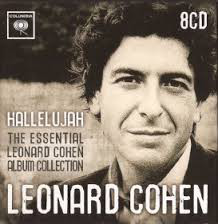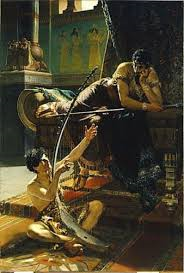
It’s praised in secular and religious circles alike. Sung at weddings and funerals. It’s a song on the movie Shrek’s soundtrack.

Catholic Cardinals tweet out lines from this song. Protestants sing it in sanctuaries.
It was even used as an emotional tribute on Saturday Night Live to Hilary Clinton after her presidential candidacy loss.

The original song was written and performed by Leonard Cohen on the album “Various Positions” over thirty years ago. Since its inception, there are multiple versions and recordings of Hallelujah available today. Some Christian artists even swap the lyrics for “worship” purposes.

WHO WAS LEONARD COHEN?
Cohen was a Canadian singer-songwriter inducted into the Rock & Roll Hall of Fame in 2008. He was ordained as a Buddhist Zen monk, but continued to consider himself Jewish. An article in the Vancouver Sun describes Cohen as a “mischievous spiritual pragmatist, drawn to whatever enlivened him.” Cohen once said, “Anything, Roman Catholicism, Buddhism, LSD, I’m for anything that works.” Cohen died at the age of 82 in 2016.
HALLELUJAH
Hallelujah was first released in 1984 with limited success. It gained popularity in the 1990’s cover by John Cale, and later Jeff Buckley. Hallelujah has been performed by almost 200 artists in various languages. It is the subject of the book “The Holy or the Broken: Leonard Cohen, Jeff Buckley and the Unlikely Ascent of ‘Hallelujah’, written by Alan Light.

Cohen wrote 80 draft verses for this song where at one writing session “he was reduced to sitting on the floor in his underwear, banging his head on the floor.” The song was praised in a New York Times review by critic Janet Maslin: “Cohen spent years struggling with his song Hallelujah which became one of the most oft-performed songs in American musical history.”
Like so many, I was wooed by this beautiful musical composition. Captivated by the Hallelujah chorus, I barely paid any attention to the lyrics. Sure, I picked up a word here or there: “David, pleased the Lord, faith was strong, God above”. But what fascinated me most was the popularity of a song praising God in secular culture. After all, doesn’t Hallelujah mean “God be praised”?
The question of why this song appealed to such contrasting demographics made me pay attention to the lyrics.
Hallelujah by Leonard Cohen:
“Now, I’ve heard there was a secret chord
That David played, and it pleased the Lord
But you don’t really care for music, do you?
It goes like this, the fourth, the fifth
The minor fall, the major lift
The baffled king composing Hallelujah
Hallelujah
Your faith was strong but you needed proof
You saw her bathing on the roof
Her beauty and the moonlight overthrew ya
She tied you to a kitchen chair
She broke your throne, and she cut your hair
And from your lips she drew the Hallelujah
Hallelujah
You say I took the name in vain
I don’t even know the name
But if I did, well really, what’s it to you?
There’s a blaze of light in every word
It doesn’t matter which you heard
The holy or the broken Hallelujah
Hallelujah
I did my best, it wasn’t much
I couldn’t feel, so I tried to touch
I’ve told the truth, I didn’t come to fool you
And even though it all went wrong
I’ll stand before the lord of song
With nothing on my tongue but Hallelujah
Hallelujah”
A Rolling Stone article titled “How Leonard Cohen’s Hallelujah Brilliantly Mingled Sex, Religion” explains how Cohen’s career had reached a low point when he wrote this song. After Bob Dylan, John Cale, and Jeff Buckley’s renditions, “created a huge cult around this song, it’s since been covered by everybody from Bono to Bon Jovi.”
Cohen is quoted in this article regarding the religious element of the song: “It had references to the Bible in it, although these references became more and more remote as the song went from the beginning to the end. Finally, I understood that it was not necessary to refer to the Bible anymore. And I rewrote this song; this is the ‘secular’ Hallelujah.”
Rolling Stone’s description of the song’s “signature prayer-like incantation,” explains its alluring spell on most listeners.
The Biblical imagery is powerful, first referring to David’s musical gifts and spiritual power in 1 Samuel 16:23 (KJV): “And it came to pass, when the evil spirit from God was upon Saul, that David took an harp, and played with his hand: So Saul was refreshed, and was well, and the evil spirit departed from him.”

But on the next line, Cohen, reminds his listener that “you don’t really care for music, do you?”
“Your faith was strong but you needed proof.” David’s lust for Bathsheba found in 2 Samuel 11:2 comes up next, “And it came to pass in an eveningtide, that David arose from off his bed, and walked upon the roof of the king’s house: And from the roof he saw a woman washing herself; and the woman was very beautiful to look upon.”

Sexual imagery climaxes when Cohen changes to the story of Samson and Delilah: “She tied you to a kitchen chair; she broke your throne, she cut your hair; and from your lips she drew the Hallelujah!”

“You say I took the Name in vain; I don’t even know the name. But if I did, well really, what’s it to you?” This line gave me pause. Is Cohen talking to God here? “I did my best; it wasn’t much; I’ve told the truth, I didn’t come to fool you.”
During Cohen’s acceptance speech into the Songwriters Hall of Fame, he said, “I wanted to push the Hallelujah deep into the secular world, into the ordinary world. The Hallelujah, the David’s Hallelujah, was still a religious song. So, I wanted to indicate that Hallelujah can come out of things that have nothing to do with religion.”
Cohen once said, “But there are moments when we can transcend the dualistic system and reconcile and embrace the whole mess, and that’s what I mean by Hallelujah. The only moment that you can live here comfortably in these absolutely irreconcilable conflicts is in the moment when you embrace it all and you say, ‘Look, I don’t understand a [expletive] thing at all—Hallelujah!’ That’s the only moment that we live here fully as human beings.”
In a “Think Christian” article, “The Generic Genius of Leonard Cohen’s Hallelujah”, John J. Thompson discusses Alan Light’s book “The Holy or the Broken”.
Alan Light, describes in his book this “most influential and misunderstood secular hymn”. Light explains that Cohen, “Explores the juxtaposition of Biblical images (David, Saul, Bathsheba, Samson and Delilah) with shockingly crude sexual references sliding between those universally sing-able choruses.”
Thompson excellently summarizes Hallelujah’s conflicting message in his article: “We sure seem to love songs and stories that can tickle our spiritual longings without demanding anything of us. Hallelujah doesn’t ask us to believe anything or to respond in any particular way. We can sing the tune, feel something emotional and then move along our own path as if there is no God and no instructions for living and loving in His world. That may not be what Cohen intended, but if Bon Jovi is singing a song about sex and loneliness at a memorial service, that’s what’s happening. On one hand, I’m encouraged that maybe the popularity and universality of a song like Hallelujah points to humanity’s continued hunger for God. However, that that hunger seems to be placated by a song so disconnected from the Gospel is frustrating. No doubt the universality of the song is part of its genius, but I’m not sure that it’s actually praising the Lord if by “praise” we simply mean “sing” and by “Lord” we really mean “something comforting that may or may not really be there.”
Cohen is right, “there’s a blaze of light in every word”. Does it matter than which we hear, “the holy or the broken hallelujah”? It doesn’t as far as Cohen is concerned.
 But as Christians, we must ask for God’s discernment in our walk even when listening to beautiful sounding songs.
But as Christians, we must ask for God’s discernment in our walk even when listening to beautiful sounding songs.
Do not be conformed to this world, but be transformed by the renewal of your mind, that by testing you may discern what is the will of God, what is good and acceptable and perfect. Romans 12:2 (ESV)
REFERENCES:
https://en.wikipedia.org/wiki/Leonard_Cohen
https://thinkchristian.reframemedia.com/the-generic-genius-of-leonard-cohens-Hallelujah
~~~0~~~
Many thanks for taking time to read or even share the above post. For similar posts and more about myself and friends, please see the below links! God bless you! Ivani Greppi.
LINKS FOR IVANI GREPPI:


Proverbs 27:17 says that “iron sharpens iron”. Thank you for shedding light on why it is important for us Christians to alert one another, sharpen one another’s walk with the Lord. What comes out of our mouths is important. Singing is no exception. As always, your blog is poignant and insightful. You are a blessing Ivani Greppi.
LikeLiked by 1 person
Thank you for commenting Sandra. May God continue to use you powerfully for His kingdom here on earth. You are anointed, and a blessing to all who know you.
LikeLike
Pingback: THE SENTIMENTAL IRONY OF THE SONG HALLELUJAH: SPIRITUAL OR SECULAR? HOLY OR PROFANE? — Ivani Greppi – In gods we trusted. – The apologetically Correct Blog
Thank you for sharing my post. God bless you and your ministry.
LikeLike
Thank you so much for sharing this Ivani! I was shocked to find this out about this popular song, as it is played in so many churches! I think many have accepted it without actually examiningthe lyrics! God bless you dear sis! ❤️🤗😘💕💕
LikeLiked by 1 person
Thanks so much sis. Many times the lyrics are changed in churches. However, the music is the same. It was not written to glorify God. And it lulls people into the deception of its purpose when the actual lyrics are played. ❤️
LikeLiked by 1 person
brilliant. thanks!
LikeLiked by 1 person
Thanks so much Leah!
LikeLiked by 1 person